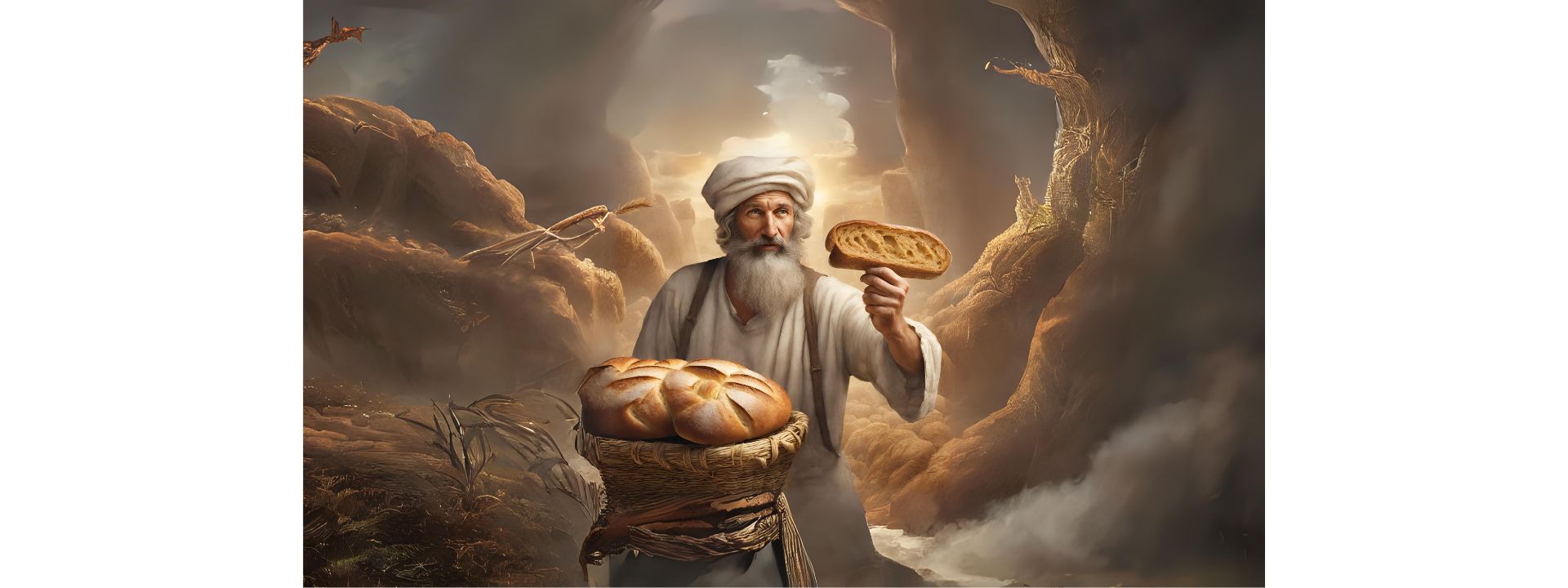Bread: An Epic Journey Through Time
21st Feb 2024

Bread, a staple food consumed by billions worldwide, has a rich and diverse history that stretches back several thousand years. From humble beginnings as a simple mixture of flour and water to the vast array of varieties found today, the story of bread is one of innovation, cultural exchange, and technological advancement. Let's delve into the fascinating journey of bread through the annals of time.
Ancient Origins:
The origins of breadtrace back to ancient civilizations such as Mesopotamia, Egypt, and Greece. People were grinding grains like wheat and barley into flour and mixing it with water to create a rudimentary form of bread way back in early Biblical times. These early loaves were flat and unleavened, baked on hot stones or in primitive ovens.
The advent of leavened bread, which rises due to the fermentation of yeast, marked a significant advancement in bread making. Ancient Egyptians are credited with discovering the leavening process. They would allow dough to ferment naturally, harnessing wild yeast from the environment. This innovation gave rise to lighter, softer loaves with improved flavor and texture.
Bread in Antiquity:
In ancient Greece and Rome, bread held great cultural and religious significance. It was a dietary staple consumed by people from all walks of life, from peasants to emperors. Greek poets and philosophers extolled the virtues of bread, recognizing its importance in sustaining life and symbolizing civilization.
Roman bakers elevated bread making to an art form, developing intricate techniques and producing a wide variety of breads. They built communal ovens where people could bring their dough to be baked, fostering a sense of community around bread production.
Medieval Europe:
During the Middle Ages, bread remained a fundamental part of the European diet. Monasteries played a crucial role in preserving and advancing the art of bread making. Monks cultivated grains, experimented with different recipes, and shared their knowledge with local communities.
The introduction of windmills and watermills in the medieval period revolutionized grain milling, making flour production more efficient and accessible. This led to the proliferation of bakeries in towns and cities, where skilled artisans crafted an assortment of breads tailored to regional tastes and traditions.
The Renaissance and Beyond:
The Renaissance saw further innovations in bread making, spurred by scientific inquiry and exploration. The discovery of the New World brought new varieties of grains, such as corn and potatoes, to Europe, enriching the diversity of breads available.
In the 19th century, the Industrial Revolution transformed bread production on a massive scale. Steam-powered mills, mechanized kneading machines, and commercial yeast production enabled the mass production of bread, making it more affordable and accessible to the growing urban population.
Modern Bread making:
Today, bread comes in countless shapes, sizes, and flavors, reflecting the diverse culinary traditions of cultures around the globe. Artisan bakeries craft sourdough boules, ciabatta loaves, and baguettes using time-honored techniques passed down through generations.
Meanwhile, large-scale bakeries churn out sliced sandwich bread, bagels, and croissants to meet the demands of a fast-paced world. Gluten-free and alternative grain breads cater to dietary preferences and restrictions, offering options for those with celiac disease or gluten sensitivity.
The Future of Bread:
As we look to the future, bread continues to adjust alongside changing tastes, technologies, and nutritional trends. However, amidst these advancements, it's essential to remember the timeless allure of bread—the comforting aroma of freshly baked loaves, the joy of breaking bread with loved ones, and the cultural significance woven into its very fabric. In an ever-changing world, bread remains a constant source of nourishment, sustenance, and connection.
Conclusion:
The history of bread is a testament to the ingenuity and creativity of man. From its humble beginnings in ancient hearths to the bustling bakeries of today, bread has sustained us through the ages, both physically and culturally. As we continue to knead, bake, and break bread together, let us celebrate the timeless tradition and enduring legacy of this humble yet extraordinary food. For bread baking easy recipes click here.
